-
 Bitcoin
Bitcoin $84,926.0065
0.32% -
 Ethereum
Ethereum $1,597.5517
1.12% -
 Tether USDt
Tether USDt $0.9999
0.00% -
 XRP
XRP $2.0794
0.68% -
 BNB
BNB $592.3432
0.68% -
 Solana
Solana $138.4445
2.95% -
 USDC
USDC $0.9999
0.00% -
 Dogecoin
Dogecoin $0.1587
2.50% -
 TRON
TRON $0.2416
-1.44% -
 Cardano
Cardano $0.6294
2.38% -
 UNUS SED LEO
UNUS SED LEO $9.3856
2.20% -
 Chainlink
Chainlink $12.8148
1.36% -
 Avalanche
Avalanche $19.2969
1.27% -
 Stellar
Stellar $0.2447
1.26% -
 Toncoin
Toncoin $2.9953
0.57% -
 Shiba Inu
Shiba Inu $0.0...01220
2.78% -
 Hedera
Hedera $0.1665
0.41% -
 Sui
Sui $2.1428
1.41% -
 Bitcoin Cash
Bitcoin Cash $336.7121
1.74% -
 Hyperliquid
Hyperliquid $18.0777
5.43% -
 Polkadot
Polkadot $3.7198
1.38% -
 Litecoin
Litecoin $76.1424
1.29% -
 Dai
Dai $1.0000
0.01% -
 Bitget Token
Bitget Token $4.4493
1.78% -
 Ethena USDe
Ethena USDe $0.9991
0.00% -
 Pi
Pi $0.6399
5.38% -
 Monero
Monero $213.1009
-1.55% -
 Uniswap
Uniswap $5.2420
1.10% -
 OKB
OKB $51.0102
1.50% -
 Pepe
Pepe $0.0...07262
2.29%
How does NFT Ticketing change the ticketing industry?
NFT ticketing uses blockchain for verifiable, unique tickets, eliminating counterfeits and streamlining sales via smart contracts. This enables secondary market trading with built-in royalties, while programmable NFTs offer enhanced event experiences, though scalability and regulation remain challenges.
Mar 01, 2025 at 12:42 pm
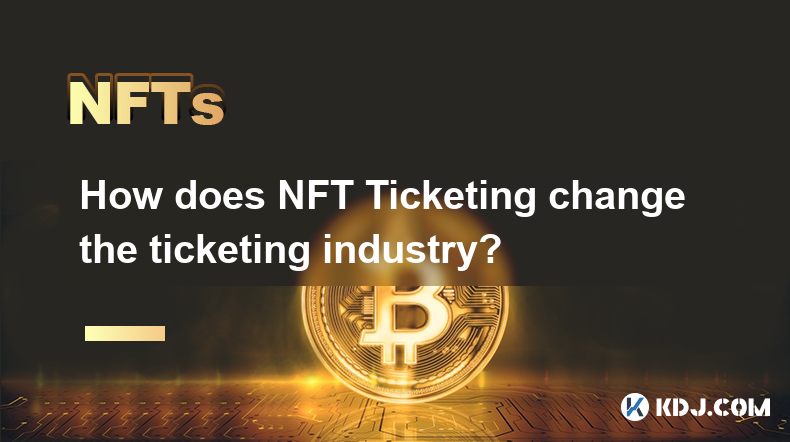
Key Points:
- NFTs offer verifiable ownership and scarcity, combating counterfeit tickets.
- Smart contracts automate ticket sales and transfers, reducing intermediaries.
- NFTs enable secondary market trading with built-in royalties for creators and venues.
- Programmable NFTs allow for unique experiences and benefits beyond entry.
- Challenges remain in user experience, scalability, and regulatory uncertainty.
How does NFT Ticketing Change the Ticketing Industry?
The ticketing industry, long plagued by fraud, high fees, and cumbersome processes, is undergoing a potential revolution thanks to Non-Fungible Tokens (NFTs). NFT ticketing leverages blockchain technology to create unique, verifiable digital tickets, addressing many of the traditional industry's pain points. The shift promises a more transparent, efficient, and potentially profitable ecosystem for all stakeholders.
One of the most significant advantages of NFT ticketing is its inherent ability to combat counterfeiting. Each ticket exists as a unique NFT on the blockchain, making duplication impossible. This verifiable ownership ensures that only legitimate ticket holders can gain entry to an event, eliminating the black market for forged tickets and protecting both the event organizers and genuine attendees.
Traditional ticketing systems rely on multiple intermediaries, leading to inflated fees and complex processes. NFT ticketing streamlines this by utilizing smart contracts. These self-executing contracts automate ticket sales, transfers, and even access control, reducing reliance on third-party platforms and minimizing associated costs. This allows for direct sales from organizers to fans, fostering a more direct and transparent relationship.
The secondary market for tickets is another area where NFTs are making a significant impact. Unlike traditional tickets, which often lose value or become untraceable once resold, NFT tickets can be easily traded on decentralized marketplaces. Crucially, smart contracts can be programmed to automatically distribute royalties to creators, artists, or venues with each resale, generating ongoing revenue streams.
Beyond simple entry, NFTs can unlock a range of additional benefits and experiences. Programmable NFTs can grant access to exclusive content, merchandise, VIP experiences, or even allow for ticket upgrades or resales at a predetermined price. This allows event organizers to create tiered experiences and increase engagement with attendees.
The transition to NFT ticketing isn't without its challenges. The current user experience can be complex for those unfamiliar with cryptocurrency and blockchain technology. Scalability is also a concern; handling large-scale events with millions of NFT tickets requires robust infrastructure. Furthermore, the regulatory landscape surrounding NFTs and digital assets remains unclear in many jurisdictions, creating uncertainty for both organizers and consumers.
Implementing NFT Ticketing: A Step-by-Step Guide (For Organizers):
- Choose a Blockchain: Select a blockchain suitable for your needs, considering factors like transaction speed, cost, and scalability. Ethereum and Polygon are popular choices.
- Develop Smart Contracts: Create smart contracts that govern ticket creation, sales, transfers, and access control. This requires expertise in blockchain development.
- Design the NFT: Create visually appealing and functional NFTs representing the tickets. This may involve collaboration with artists or designers.
- Establish a Marketplace: Decide whether to use an existing NFT marketplace or build a custom platform for ticket sales and secondary trading.
- Integrate with Access Control: Connect your NFT ticketing system with your venue's entry system to verify ticket authenticity.
- Market and Educate: Communicate the benefits of NFT ticketing to your audience, addressing potential concerns and providing clear instructions.
Addressing User Concerns:
- Technical Complexity: Many people are unfamiliar with cryptocurrencies and NFTs. Educational resources and user-friendly interfaces are crucial for adoption.
- Security Concerns: Users need reassurance that their NFT tickets are secure and protected from theft or loss. Strong security measures and clear guidelines are essential.
- Cost and Accessibility: The cost of acquiring and using NFTs, including gas fees, could be a barrier for some attendees. Exploring cost-effective solutions is vital.
- Environmental Impact: Some blockchains have higher energy consumption than others. Choosing eco-friendly blockchains and implementing carbon offsetting strategies are important considerations.
Common Questions & Answers:
Q: Are NFT tickets more expensive than traditional tickets? A: The price of an NFT ticket depends on several factors, including demand, the event itself, and any additional benefits included. It's not inherently more or less expensive than a traditional ticket.
Q: What happens if I lose my NFT ticket? A: The ownership of the NFT is recorded on the blockchain, so the ticket itself can't be "lost." However, if you lose access to your digital wallet, you may lose access to your ticket. Securely storing your private keys is crucial.
Q: Can I resell my NFT ticket? A: Yes, NFT tickets can be resold on secondary marketplaces, often with built-in royalties for the original issuer. The ability to resell depends on how the smart contract is programmed.
Q: Are NFT tickets susceptible to hacking? A: While blockchain technology is generally secure, smart contracts can have vulnerabilities. Thorough auditing and security measures are essential to minimize risks.
Q: What if the event is canceled? A: Smart contracts can be programmed to handle refunds or alternative arrangements in case of cancellations, offering more flexibility than traditional tickets.
Q: How are royalties paid on NFT ticket resales? A: Royalties are automatically distributed to the original issuer (e.g., event organizer, artist) through the smart contract whenever the NFT is resold on a compatible marketplace. The percentage of the royalty is predetermined in the contract.
Q: What regulations apply to NFT ticketing? A: The regulatory landscape for NFTs is still evolving. Organizers should consult legal professionals to ensure compliance with relevant laws in their jurisdictions.
Q: What are the environmental implications of using NFTs for ticketing? A: The energy consumption of blockchain networks varies significantly. Choosing energy-efficient blockchains and exploring carbon offsetting mechanisms are vital for minimizing the environmental impact.
Disclaimer:info@kdj.com
The information provided is not trading advice. kdj.com does not assume any responsibility for any investments made based on the information provided in this article. Cryptocurrencies are highly volatile and it is highly recommended that you invest with caution after thorough research!
If you believe that the content used on this website infringes your copyright, please contact us immediately (info@kdj.com) and we will delete it promptly.
- Pi Network reveals 3-phase migration roadmap but provides no timeline or rollout dates.
- 2025-04-19 15:20:13
- Bitcoin's Price Increased to USD 84,000 After a Recent Fall
- 2025-04-19 15:20:13
- Cardano's NFT ecosystem is making waves in the Web3 space, rapidly gaining traction among creators and collectors.
- 2025-04-19 15:15:13
- MicroStrategy CEO Michael Saylor Predicts Bitcoin Price Will Hit $10 Million
- 2025-04-19 15:15:13
- Despite a Recent Rebound Above the Psychological Threshold of $0.60, Cardano (ADA) Remains Under Bearish Pressure
- 2025-04-19 15:10:13
- Oregon's Attorney General Revives SEC's Case Against Coinbase, Raising Concerns About the Future of XRP
- 2025-04-19 15:10:13
Related knowledge
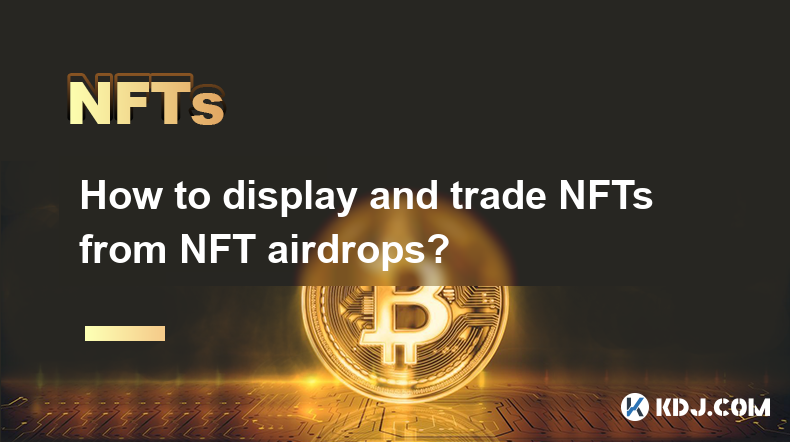
How to display and trade NFTs from NFT airdrops?
Apr 18,2025 at 04:42am
How to Display and Trade NFTs from NFT Airdrops? NFT airdrops have become a popular way for projects to distribute their tokens and engage with their community. If you've received NFTs through an airdrop, you might be wondering how to display and trade them. This article will guide you through the process step-by-step, ensuring you can showcase your NFT...
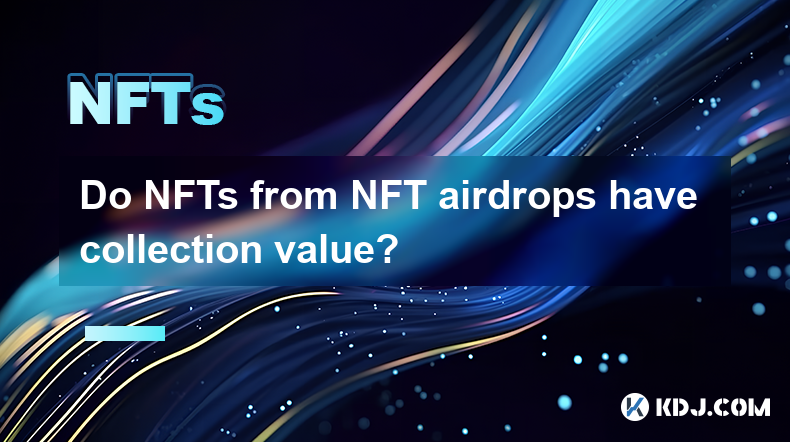
Do NFTs from NFT airdrops have collection value?
Apr 18,2025 at 11:49pm
NFTs, or non-fungible tokens, have become a significant part of the cryptocurrency ecosystem, and NFT airdrops are one way for projects to distribute these digital assets to their community. A common question that arises is whether NFTs received from airdrops have any collection value. To answer this question, we need to delve into various aspects of NF...
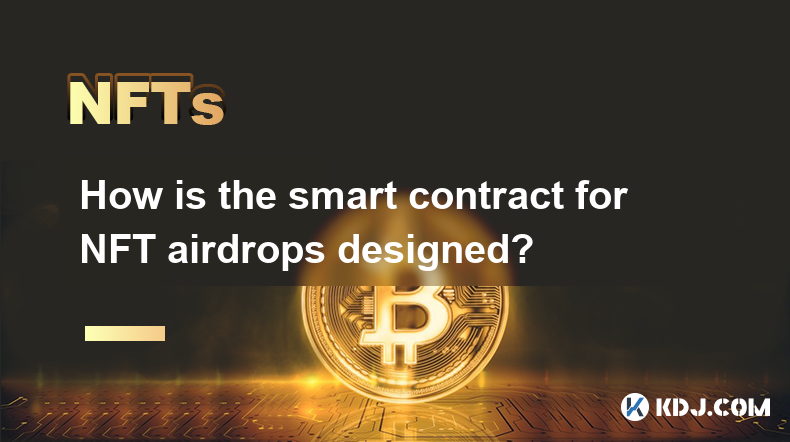
How is the smart contract for NFT airdrops designed?
Apr 18,2025 at 03:10am
The design of a smart contract for NFT airdrops is a complex process that requires careful consideration of various factors to ensure the airdrop is executed smoothly and securely. This article will delve into the intricacies of how such a smart contract is designed, focusing on key components, security measures, and the implementation process. Key Comp...
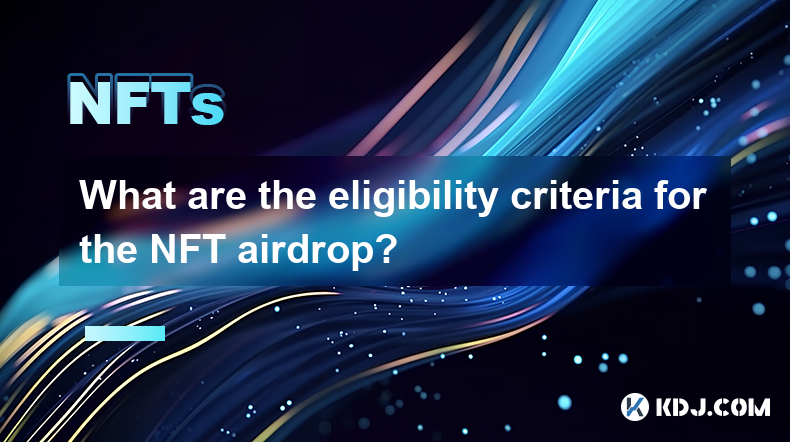
What are the eligibility criteria for the NFT airdrop?
Apr 17,2025 at 04:56pm
Understanding NFT AirdropsNFT airdrops are a popular method used by blockchain projects to distribute non-fungible tokens (NFTs) to their community members. These airdrops can serve various purposes, such as rewarding loyal users, promoting new projects, or increasing the visibility of existing ones. To participate in an NFT airdrop, individuals must me...

How to protect the copyright of artworks on NFT platforms?
Apr 19,2025 at 06:28am
The rise of Non-Fungible Tokens (NFTs) has revolutionized the way digital art is created, bought, and sold. As artists increasingly turn to NFT platforms to showcase and monetize their work, protecting the copyright of these artworks becomes a crucial concern. This article explores various strategies and tools that artists can use to safeguard their int...
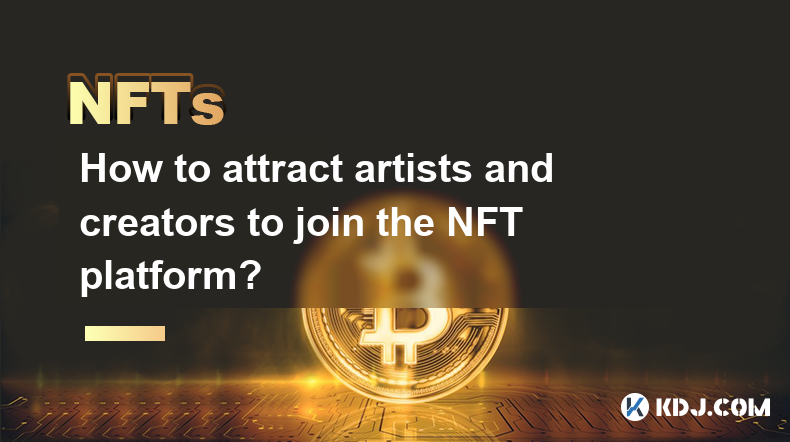
How to attract artists and creators to join the NFT platform?
Apr 18,2025 at 02:50pm
Attracting artists and creators to join an NFT platform is crucial for its success and growth. By understanding their needs and offering unique features, you can create a thriving community of digital artists and content creators. In this article, we will explore several strategies to entice artists and creators to join your NFT platform. Understanding ...

How to display and trade NFTs from NFT airdrops?
Apr 18,2025 at 04:42am
How to Display and Trade NFTs from NFT Airdrops? NFT airdrops have become a popular way for projects to distribute their tokens and engage with their community. If you've received NFTs through an airdrop, you might be wondering how to display and trade them. This article will guide you through the process step-by-step, ensuring you can showcase your NFT...

Do NFTs from NFT airdrops have collection value?
Apr 18,2025 at 11:49pm
NFTs, or non-fungible tokens, have become a significant part of the cryptocurrency ecosystem, and NFT airdrops are one way for projects to distribute these digital assets to their community. A common question that arises is whether NFTs received from airdrops have any collection value. To answer this question, we need to delve into various aspects of NF...

How is the smart contract for NFT airdrops designed?
Apr 18,2025 at 03:10am
The design of a smart contract for NFT airdrops is a complex process that requires careful consideration of various factors to ensure the airdrop is executed smoothly and securely. This article will delve into the intricacies of how such a smart contract is designed, focusing on key components, security measures, and the implementation process. Key Comp...

What are the eligibility criteria for the NFT airdrop?
Apr 17,2025 at 04:56pm
Understanding NFT AirdropsNFT airdrops are a popular method used by blockchain projects to distribute non-fungible tokens (NFTs) to their community members. These airdrops can serve various purposes, such as rewarding loyal users, promoting new projects, or increasing the visibility of existing ones. To participate in an NFT airdrop, individuals must me...

How to protect the copyright of artworks on NFT platforms?
Apr 19,2025 at 06:28am
The rise of Non-Fungible Tokens (NFTs) has revolutionized the way digital art is created, bought, and sold. As artists increasingly turn to NFT platforms to showcase and monetize their work, protecting the copyright of these artworks becomes a crucial concern. This article explores various strategies and tools that artists can use to safeguard their int...

How to attract artists and creators to join the NFT platform?
Apr 18,2025 at 02:50pm
Attracting artists and creators to join an NFT platform is crucial for its success and growth. By understanding their needs and offering unique features, you can create a thriving community of digital artists and content creators. In this article, we will explore several strategies to entice artists and creators to join your NFT platform. Understanding ...
See all articles
























































































